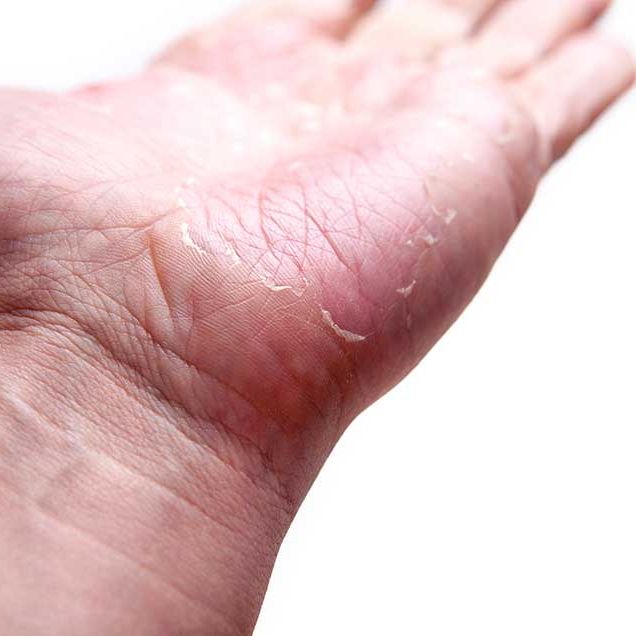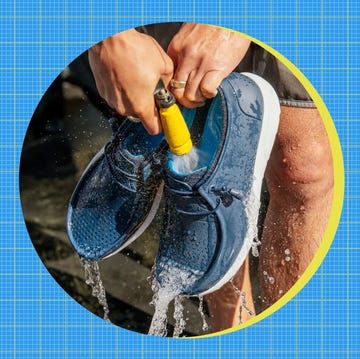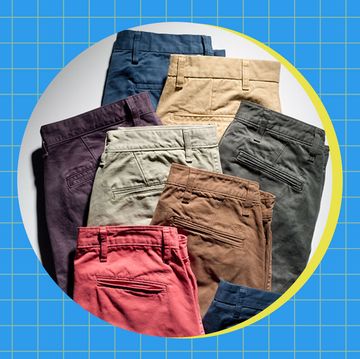Dry skin is a standard skin issue—but what happens when your go-to moisturizer just isn’t cutting it?
If your dry skin looks red or patchy, or feels dry or itchy, it could be more than just dry skin. You may have a condition called eczema.
What Is Eczema?
Eczema—also known as dermatitis—is an itchy skin condition that usually shows up where your skin folds, like your elbows and knees, says Emma Guttman-Yassky, M.D., Ph.D., professor of dermatology at the Icahn School of Medicine at Mount Sinai.
The term is pretty broad, says Rebecca Kazin, M.D., a dermatologist at the Washington Institute of Dermatologic Laser Surgery and the Johns Hopkins Department of Dermatology.
It can actually take a few different forms: a rash, a sore, inflammation, or just plain dry skin.
Most often, you’ll notice it as red, itchy, scaly patches on your skin.
What Causes Eczema?
Most eczema cases are caused by genetic factors. If your family has a history of it, you’re likely to have it as well.
A family history of asthma or seasonal allergies also ups your risk, says Dr. Kazin.
Although the disease is often long-lasting, outbreaks can come and go depending on outside factors like stress, or contact with irritants or allergens, says Dr. Kazin.
For instance, harsh detergents or chemicals can trigger the inflammatory response, which often presents as red, itchy, flaky skin.
How to Treat Eczema
There are some things you can do at home to protect your skin.
Pare down your grooming routine: Dr. Kazin recommends removing soaps and lotions with fragrances or ingredients like bacitracin and paba, which can irritate your skin.
Because eczema compromises your skin’s barrier, it leaves your skin extra sensitive, making it more vulnerable to these harsher ingredients.
Instead, look for products marked as hypoallergenic. These don’t compromise your skin’s barrier function, meaning allergens won’t be able to disrupt your skin as easily.
Related:
Revamping your shower routine can help, too.
Keep the temperature lukewarm—a hot shower dries out your skin, making sensitive areas even worse.
Use a moisturizer-infused soap to keep your skin hydrated, like this Vanicream one ($6, amazon.com).
Next, apply a good over-the-counter lotion immediately after you shower, when your pores are dilated. Dr. Kazin recommends PCA Rebalance ($39, pcaskin.com).
This allows your skin to effectively absorb the product. And if your skin is well-hydrated, your eczema is less likely to flare up.
Related: How to Freshen Up Without Taking a Shower
Emollients can help, too. These products are essentially moisturizers for very dry skin.
They draw in water from the atmosphere as well as trap water on your skin that is present after bathing, says Dr. Kazin. They also repair your skin barrier. All of these factors leave your skin well-hydrated and prevent outbreaks.
Try PCA SKIN Silkcoat Balm ($39, pcaskin.com), she recommends.
Still noticing eczema flare-ups?
Schedule an appointment with your dermatologist if you find that these OTC treatments aren’t helping, says Dr. Kazin.
If your outbreak is severe, he or she may prescribe a topical or oral steroid to quickly stop inflammation and allow your skin barrier to heal, she says.













